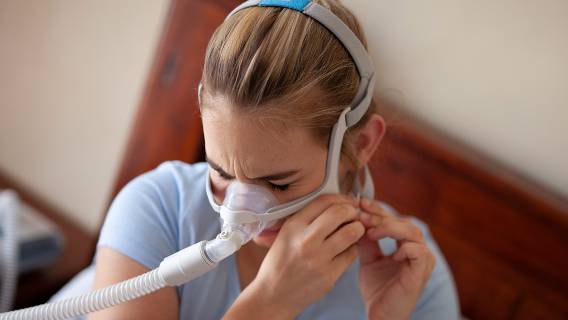
The journal Sleep recently published a study of the effects of surgery that repositions the palate and reduces tongue volume for people with obstructive sleep apnea. The researchers found that surgery can be a positive alternative for people who don’t respond to other treatments.
Often those with sleep apnea are prescribed treatment with continuous positive airway pressure, bi-level positive airway pressure or mechanical ventilator devices. For those who don’t respond to use of CPAP, BiPAP and ventilator machines, sleep apnea multilevel surgery may improve quality of life.
The SAMS “randomized clinical trial showed surgery improved outcomes at 6 months.” Surgical participants were also “reassessed >2 years postoperatively with the same outcomes reported in the main SAMS trial.”
“Long-term effectiveness (baseline to long-term follow-up [LTFU]) and interval changes (6 month to LTFU) were assessed using mixed effects regression models. Control participants were also reassessed for rate of subsequent surgery and outcomes,” the researchers wrote. “Interval change analysis suggests stability of outcomes.”
Philips CPAP Lawsuits Prompt Patients to Seek Alternative Treatments
Some among the millions of CPAP users in the U.S. may seek alternative treatments because they haven’t seen desired symptom relief or adapted well to use of their device. Others are seeking alternatives because of concerns over reported CPAP injuries that have led to lawsuits against Philips.
Injuries named in lawsuits include cancer and respiratory complications plaintiffs claim are the result of inhaling or ingesting particles of sound abatement foam used in the machines. The polyester-based polyurethane foam could degrade and result in potentially toxic gasses.
The U.S. Food and Drug Administration announced it received more than 98,000 medical device reports by the end of 2022. Manufacturer Philips Respironics recalled millions of CPAP devices in 2021.
Following the recall a class action lawsuit sought compensation for economic damages related to the recalled machines. Philips offered a settlement of $479 million to settle in September 2023.
There is also ongoing multidistrict litigation with 716 cases still pending as of September 2023. Cases in MDL 3014 are assigned to the Western District of Pennsylvania and seek compensation for pain and suffering, medical expenses and lost wages. Lawyers are currently accepting cases for those injured after using recalled Philips machines.